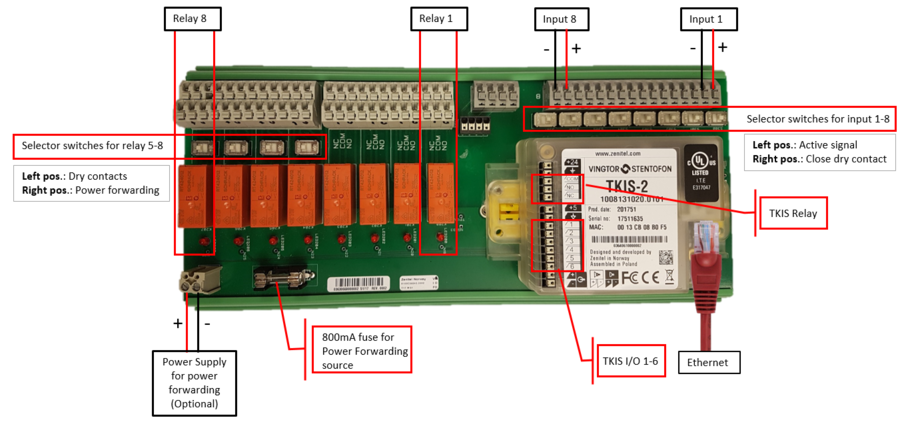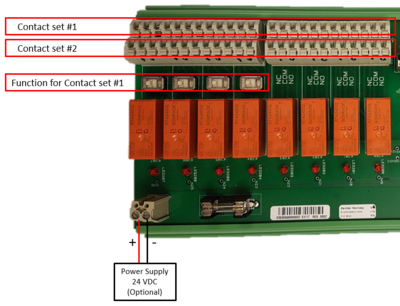Difference between revisions of "IP-LCM Connections"
From Zenitel Wiki
| Line 2: | Line 2: | ||
== Inputs == | == Inputs == | ||
| − | Each of | + | There are 8 inputs. Each of them has a corresponding selector switch, with which one can select between a dry closing contact or an active input. |
* '''Left position''': The input requires an active signal, typically 5, 12V or 24VDC. The input is galvanic isolated with an opto-coupler. Polarity as indicated on the drawing. | * '''Left position''': The input requires an active signal, typically 5, 12V or 24VDC. The input is galvanic isolated with an opto-coupler. Polarity as indicated on the drawing. | ||
* '''Right position''': The input requires a dry contact | * '''Right position''': The input requires a dry contact | ||
Revision as of 15:58, 10 January 2019
Inputs
There are 8 inputs. Each of them has a corresponding selector switch, with which one can select between a dry closing contact or an active input.
- Left position: The input requires an active signal, typically 5, 12V or 24VDC. The input is galvanic isolated with an opto-coupler. Polarity as indicated on the drawing.
- Right position: The input requires a dry contact
Outputs
There are 8 relays, each with two sets of changeover contacts (DPDT). The changeover contacts, normally open (NO), normally closed (NC) and common (COM), are labeled in the silk print of the PCB.
Relay 5 to 8 has a . This allows forwarding power from the power forwarding connector to the relay normally open and common on each output.
Relay contact ratings:
- Outputs: DPDT (Double Pole Double Throw). NO (Normal Open), NC (Normal Closed), COM (Common)
- Switched voltage: < 250VAC Rated (400VAC Max)
- Switched Voltage: < 2000 VA max
- Switching Current: < 8A rated (15A max, 4s)
Indicators
Each output has a LED which indicates if the output is active or not.
See here for for information on the TKIS-2 kit connections


